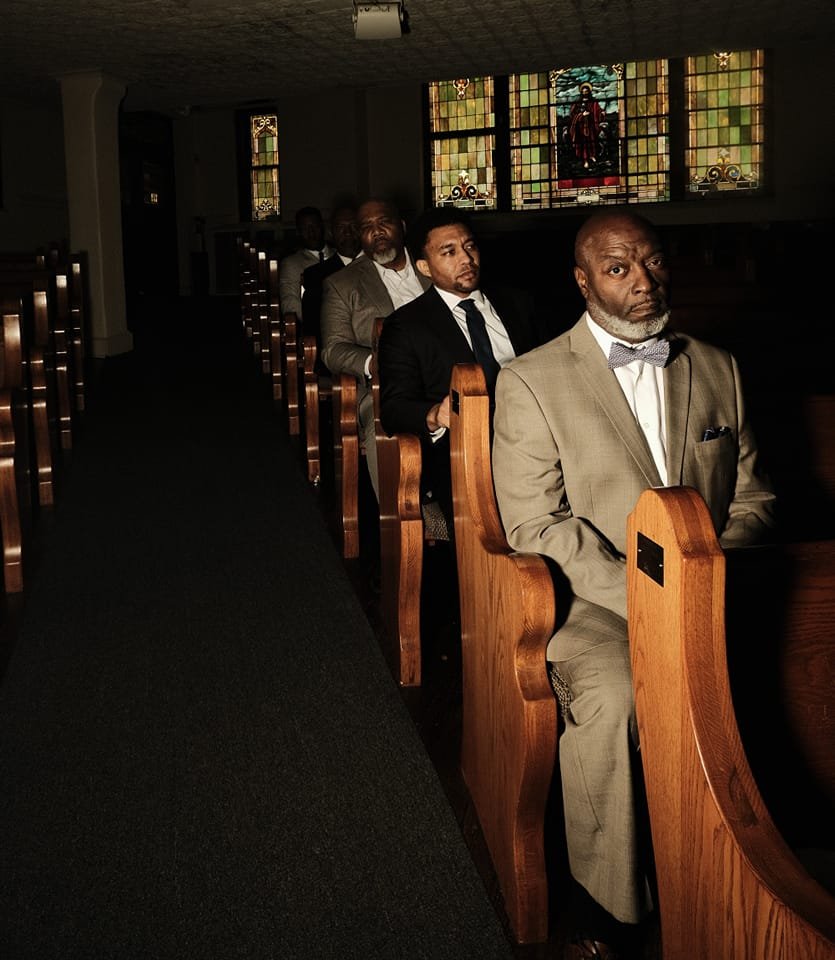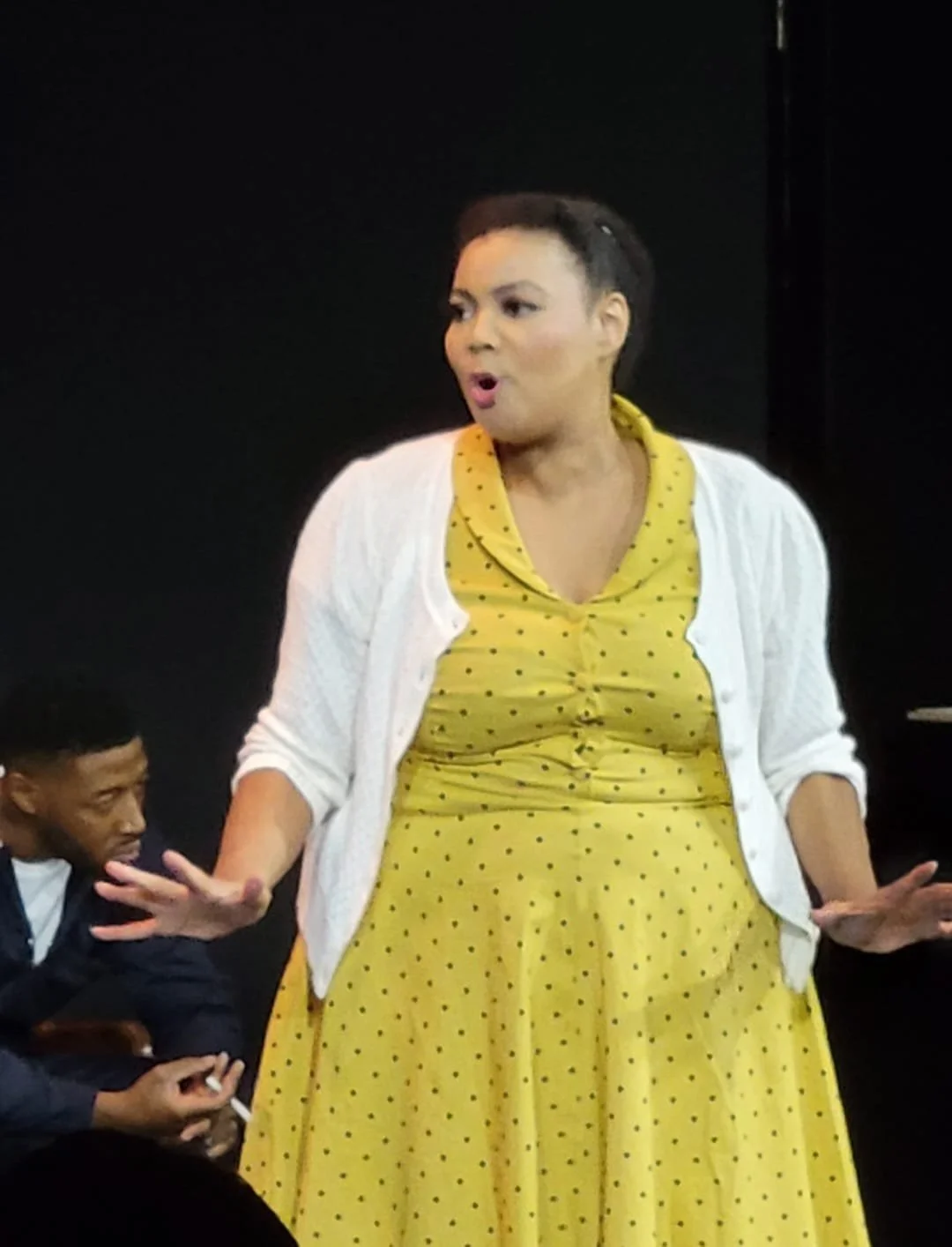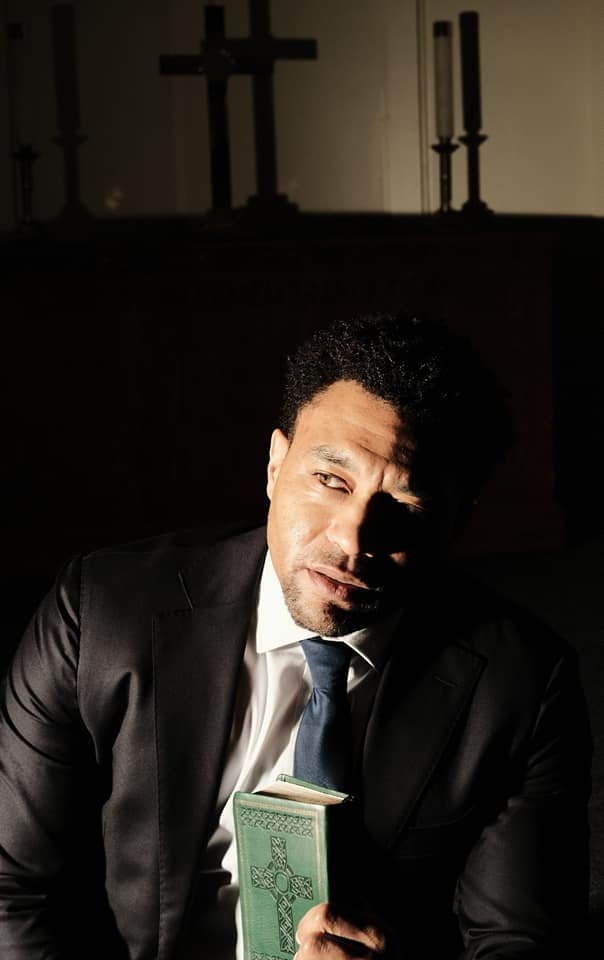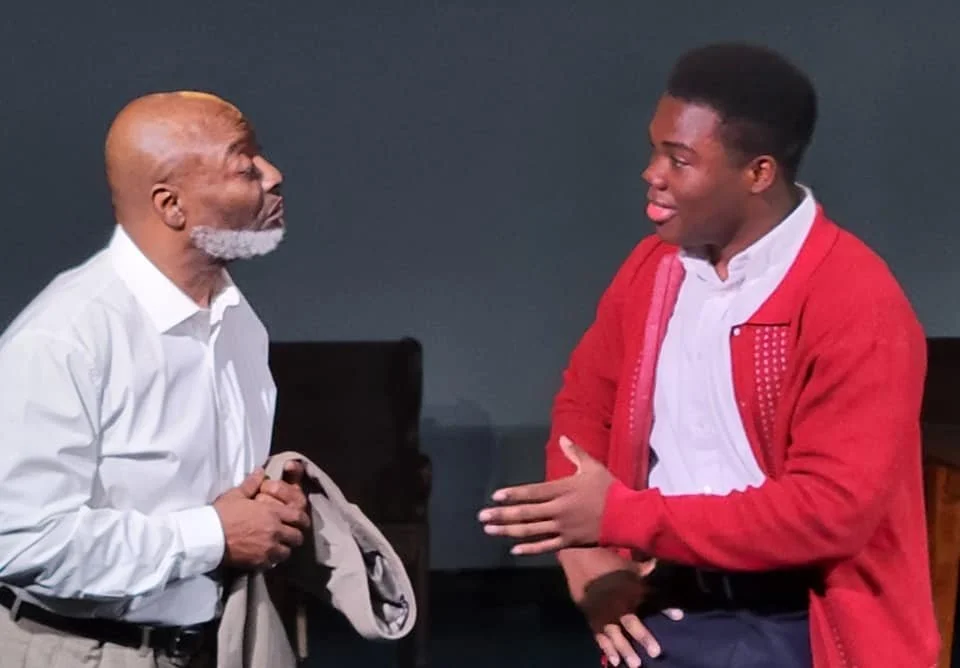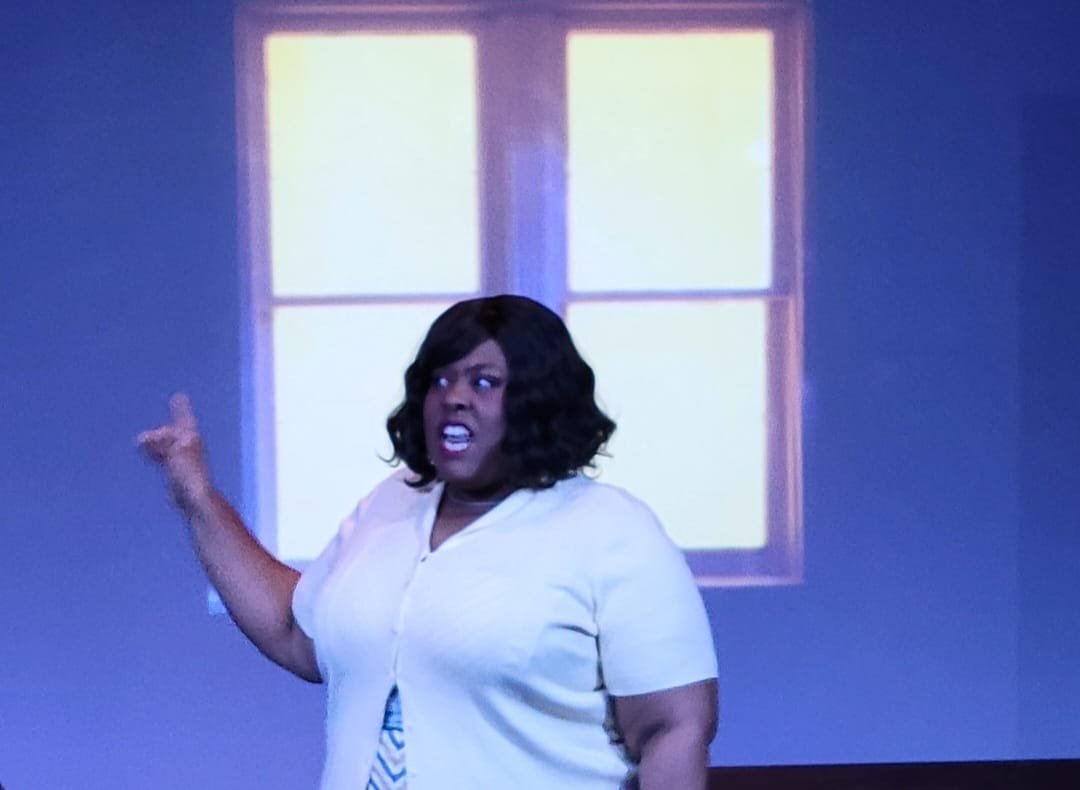Travisville @ Soul Rep Theatre
—Review by Sam Lisman
Watching William Jackson Harper’s Travisville at Soul Rep Theatre, a play inspired in part by journalist Jim Schutze’s book The Accomodation, a history of racism, power, and civil rights in 1950s-60s Dallas, I was repeatedly reminded of three quotes. First, Bismarck’s “Politics is the art of the possible, the attainable—the art of the next best,” and J.K. Galbraith’s rejoinder, “Politics is not the art of the possible. It consists in choosing between the disastrous and the unpalatable." And then Thomas Sowell’s “There are no solutions, there are only trade-offs; and you try to get the best trade-off you can get, that’s all you can hope for.”
It's 1964, in an unnamed southern American city—a city that has, so far, escaped the worst turmoil of the Civil Rights era. There have been no riots, no firehoses, no boycotts. No white politicians blocking the school house doors as members of the community spit on children seeking an education. No church bombings, no deployment of the National Guard. But there’s been violence: beatings, bombings of homes and cars, unnecessary arrests, and all the everyday outrages so common in the century of Jim Crow. Most restaurants are open to whites only; segregated seating continues on buses; stores forbid “colored” shoppers to try on clothing.
The city doesn’t want the reputation of a “troubled” town. It’s bad for business. The city needs economic activity, and the mayor has a plan: remove a crumbling mostly Black neighborhood and replace it with a brand-new, mixed-use development called Travisville, the sort of neighborhood that will lead the city into a golden future. And the current residents? Well, they’ll get paid—paid for what the land is worth today, not for the value it will have if the project moves forward. Paid less for their homes than it will cost them to buy another. But paid. Certainly that’s something, right?
The council of ministers who serve as the Black community’s liaison with the mayor have decided it is. Moreover, they believe the good will their “accommodation” creates will improve life for the people of their community. The mayor will owe them. The future looks promising for the powers-that-be (both Black and white), until an out-of-state organizer arrives on the scene and begins asking questions about The Plan.
Travisville might rightly have been subtitled The Education of Minister Fletcher, but truly it’s an ensemble piece—and the ensemble is remarkable. Wes Frazier, playing thoughtful young Minister Ora Fletcher, is transparent in his struggles to reconcile the conflict between his ideals and his loyalty to his mentor, the ailing (dying, in fact) Minister Alden Hearst (Calvin Gabriel). As the play requires, Fletcher is overshadowed by Hearst—who is firmly committed to maintaining a good relationship with the mayor and other officials, in hopes of gradual change. Gabriel dominates every scene he’s in—and is matched by two other big personalities with their own strong views.
First, there’s Minister D. L. Gunn (Jerrold Trice), an imposing figure with a booming voice, a drinking problem, and a secret that has haunted him for decades. The other is Mayor Ainsley Gillette (Ken Orman, who also plays Travisville developer Jaston Honeycutt). Gillette ran as a moderately progressive candidate, but one who is (he would say) realistic about the world. He believes, with some evidence, that the majority white community of the city isn’t ready for the kind of changes being requested. He’s not George Wallace, but he makes his disdain for his Black constituents obvious.
Octavia Thomas plays two roles: Fletcher’s wife Bethany, his wise advisor, and gutsy neighborhood resident Laverne Campbell. Ashley M. Oliver is Georgia Dawson, wife of a local mechanic. The actresses are given powerful monologues that allow them to personalize the story, reminding us that this isn’t just politics, it’s life and death. Both do an excellent job delivering that message with emotion and strength.
Zeke Phillips, the organizer from Atlanta (agitator, the mayor would say) is played idealistically and passionately by Tyler Lang. He doesn’t care about the way things are done here; he demands justice now. He’s joined, up to a point, by Georgia’s husband Orthell, played emotionally by Corey Pratt, and challenged by a skeptical older resident (played by Bill Hass), who has seen this all before.
Rebecca Jeffrey’s set makes excellent use of the cramped Margo Jones stage; a table, a few chairs, and two pews are moved around to give the appearance of several distinct locations, while Jasmine Woods’ costumes seem historically appropriate for each character’s personality and place in the world. The sound, by Nash Farmer, which consists mostly of rain storms, is loud enough that it can’t be missed, but doesn’t diminish the audience’s ability to hear the actors. Charlton Gavitt’s lighting deserves praise: as the play jumps from one side of the stage to the other during quick scene changes, he expertly projects the differing ambiance of each setting. This is clearly a labor of love for director Guinea Bennett-Price, who keeps the pacing swift and the emotions running high.
Though the production is very strong, it’s not perfect. Whether a decision by the playwright or the director, the choice to have the opening line of the next scene be spoken from the dark corners of the theater—over the last words of the scene before it—was off-putting and jarring. And the play doesn’t end as powerfully as it almost begged to be ended. The anticipation was palpable; I feared what was coming—and was left feeling oddly empty. Perhaps the play is constrained by trying to stay inside the actual historical record—of change put off, thwarted, left to creep forward in painful “gradualism.”
All that said, what makes Travisville so good, so important, is the strength of the characters. Despite the play being very much about black and white, the characters are complex and colorful. They’re good people struggling with a bad situation, not of their making, and trying to find the best course of action. Zeke’s push for immediate justice—not slow, small improvements—serves as a catalyst, moves people to think and act. Many of the older, more experienced leaders and residents of the Black community recognize that large leaps come with giant risks and significant negative repercussions. But all have the same goals: it’s their strategies, their methods, that differ.
The cost of a radical approach is measured in dead bodies, while incrementalism allows continued injustices—in the hope they will diminish over time.
And in Travisville, “There are no solutions, only trade-offs.”
WHEN: Through December 18
WHERE: Margo Jones Theatre (Fair Park), Dallas
WEB: soulrep.org
